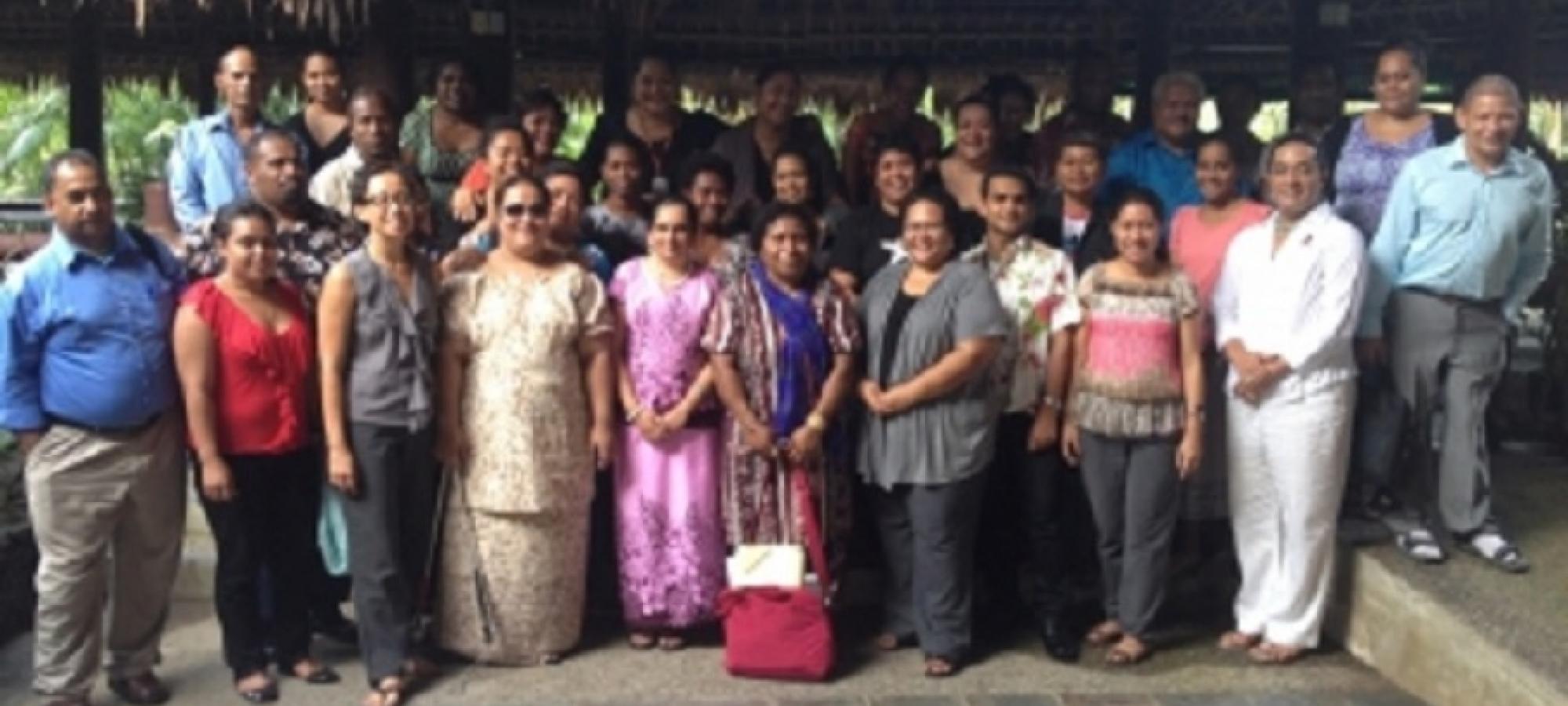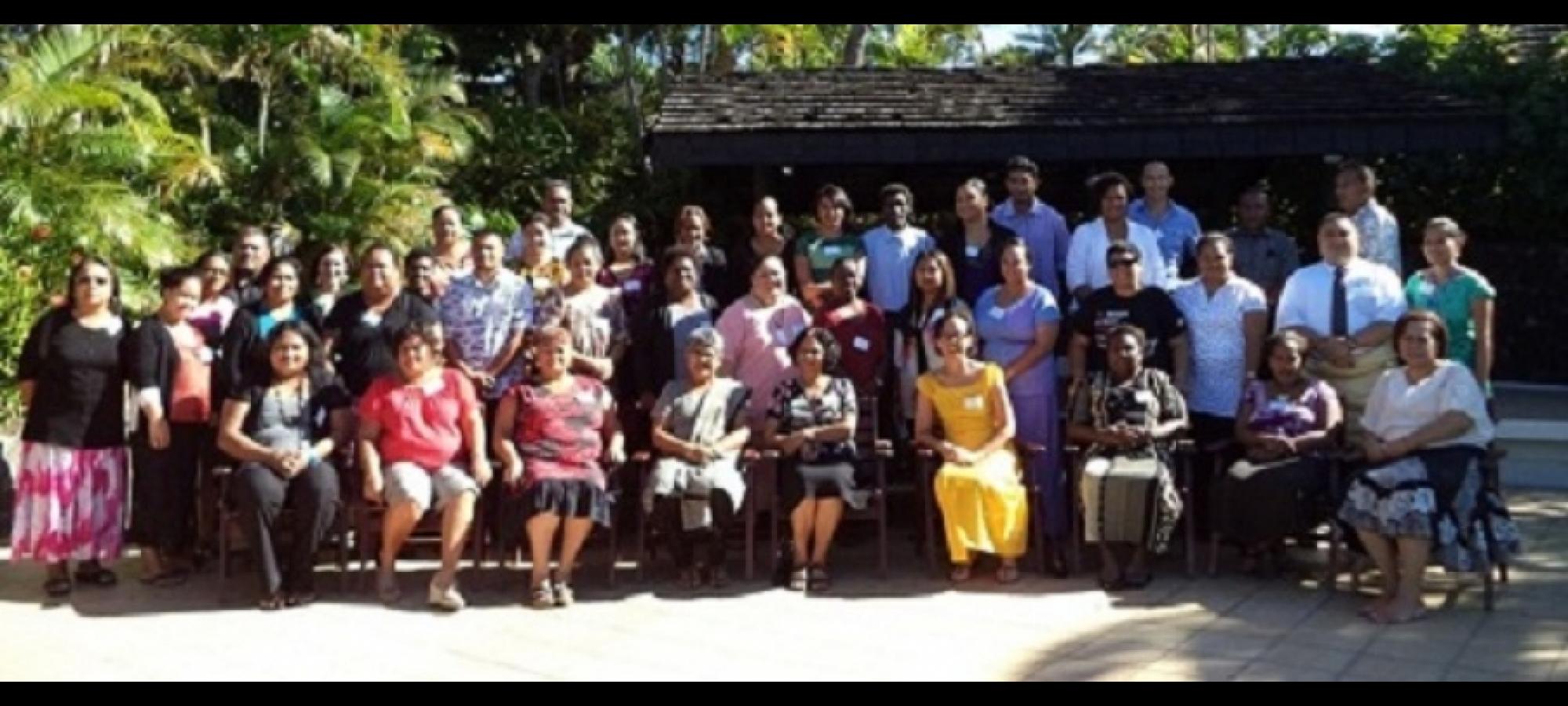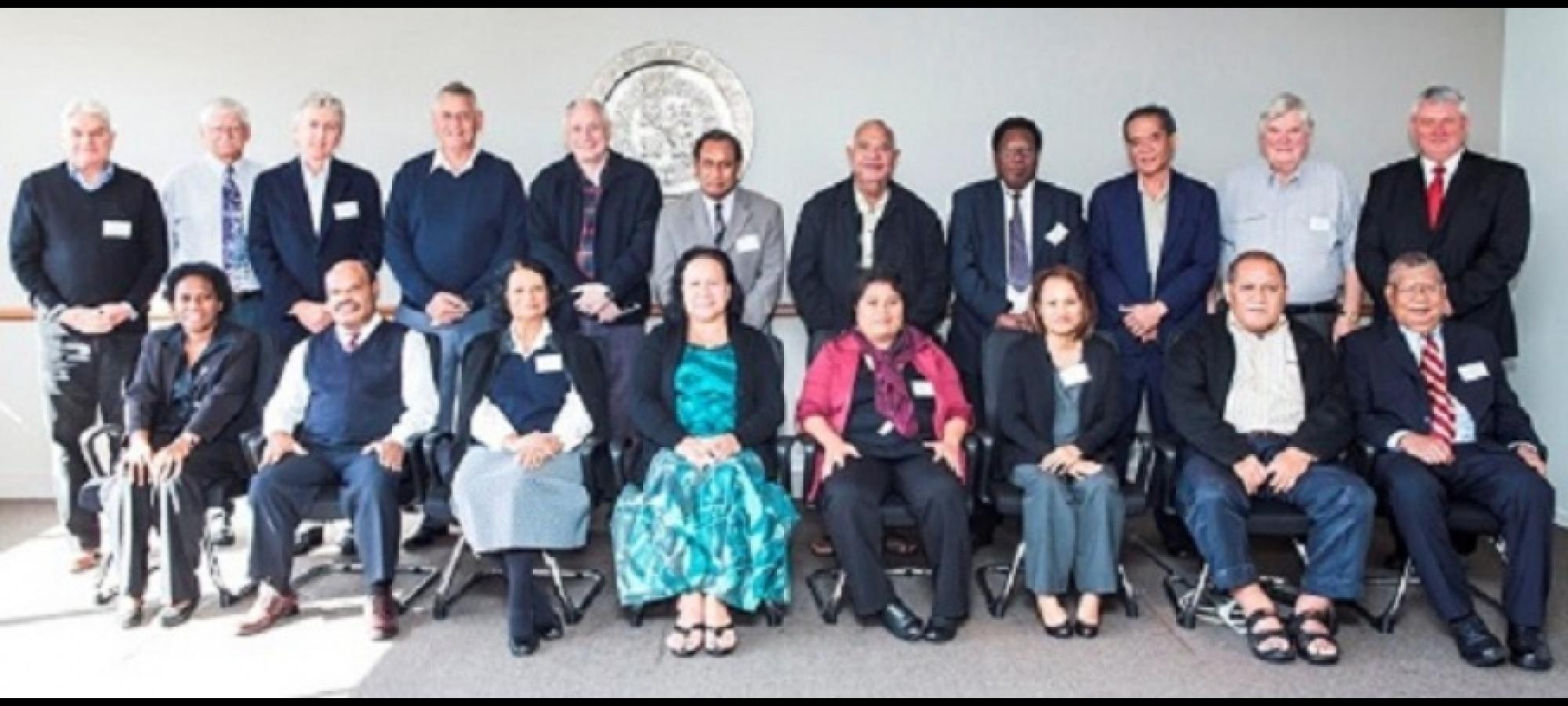Studies conducted by the Secretariat of the Pacific Community (SPC) in partnership with the United Nations Population Fund (UNFPA) have found that in Kiribati 68 per cent of women aged 15 – 49 have experienced physical and or sexual violence.
In Solomon Islands the figure was 64 per cent and in Samoa it was 41 per cent. These figures are considered indicative of the scale of the problem across the region.
MPs are increasingly affirming that they have a pivotal role in addressing the issue through supporting law reform in parliament. Many of the present laws relating to violence against women in Pacific Island nations are decades old and do a poor job of recognising and responding to this complex social problem.
The introduction of new laws that provide more comprehensive legal responses and remedies can have a big impact on reducing rates of violence and providing support services to those affected.
The members of parliament signing in support of the UN Secretary-General's UNiTE campaign and calling for increased action in the Pacific were the Honourable Nandie Glassie and Tangata Vavia from Cook Islands, the Honourable Paliknoa Welly and Joseph Uresemal from the Federated States of Micronesia, the Honourable Martin Tofinga from Kiribati, the Honourable Regina Mesebeluu from Palau, former Opposition Leader Dame Carol Kidu from Papua New Guinea, the Honourable Clay Forau Soalaoi, Peter Tom, Martin Sopage and Vasian Lonamei from Solomon Islands, the Honourable Faalesa Pitoi from Tuvalu, and current Speaker of the House, the Honourable Dunstan Hilton, and former Minister for Justice, Isabelle Kora, from Vanuatu.
The MPs want their action to act as a catalyst for increased political awareness and effort throughout the Pacific to better protect women and children and ensure their right to live free from violence.
Pacific Leaders have, through the 2009 Cairns Communiqué, acknowledged that violence against women is an impediment to Pacific societies. They recognised sexual and gender based violence as a sensitive issue in Pacific cultures and noted that it is pervasive and underreported.
Addressing the problem 'at all levels of the community' is a priority, according to Leaders.
In 2010 the Pacific Islands Forum Regional Security Committee established a Reference Group to Address Sexual and Gender Based Violence.
The Reference Group's mandate is to raise awareness and guide national efforts to meet Forum Leaders' commitment to eradicate sexual and gender based violence and to ensure all individuals have equal protection of the law and equal access to justice.
For more information, contact Daiana Buresova, Senior Human Rights Legal Policy Researcher, SPC Regional Rights Resource Team: [email protected] +679 330 5582











